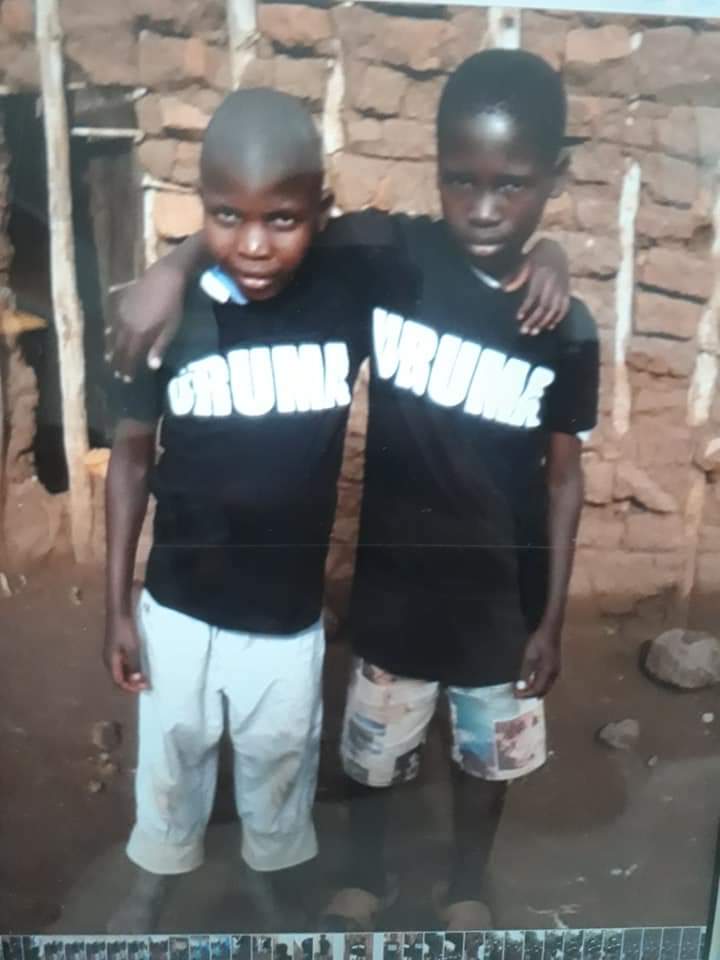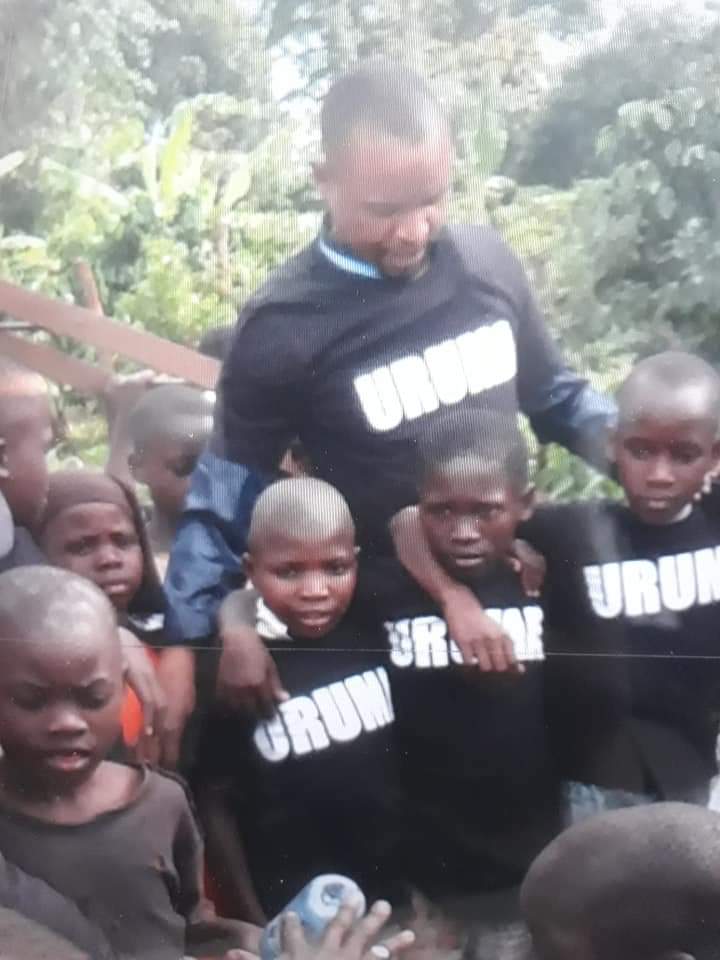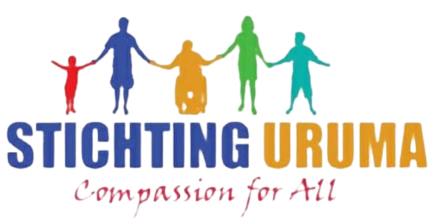Burundi Early Childhood Initiative (BECI):
Stichting Uruma introduced Burundi Early Childhood Initiative (BECI) in 2010 as a result
its a one-year needs assessment (2008-2009) that reviewed the existing pre-primary
system, post-war family dynamics, community awareness of ECD and expressed
concerns of pre-primary teachers and superintendents throughout the greater
Bujumbura area.
BECI addresses both the immediate and long-term needs of educators, children and
their families in regards to early childhood care and education. The popular program
focuses on providing training and materials for early childhood development teachers.
The trainings and materials help the teachers learn to better manage their classes and
provides the tool to make learning fun.
At its peak, the program will cater for 1000 children as a pilot project.
Infrastructure Development and Donations
Stichting Uruma establishes a safe and healthy environment for women and children by providing for their core needs like food, water, shelter and in-kind donations and new community infrastructure. By leveraging the use of local materials and employing local people, Stichting Uruma maximizes the economic and social impact of programs which include building school and playgrounds, health centre, shelters for the homeless and micro-lending to women groups.
Women and Girls Safety Initiative
Stichting Uruma Burundi provides Gender –Based Violence (GBV) prevention and
response through a community –based campaign initiative in collaboration with local
officials and other partner civil society organizations.
The initiative aims at empowering persons of different ages, gender and diverse
backgrounds to promote their participation in decisions that affect their lives. The
program support women, girls, men, and boys to receive vital information about
services, become aware of their rights, acquire new skills, build social networks, and
receive specialized services. More particularly, the program prioritizes GBV and child
protection cases. Prevention services are designed to actively engage with community
in defining and implementing local solutions that influence their lives through
strengthened community structures, mitigate protection risks through improved
awareness and positive community practices on gender equality and GBV
Amplifying Voices of the Disabled Persons
Evidence exists in Uganda to show that disabled persons, especially women and girls
with disabilities face barriers in most areas of life. In its general comment on women and
girls with disabilities, the Committee on the Rights of Persons with Disabilities (CRPD)
notes that these barriers create situations of multiple and intersecting forms of
discrimination against women and girls with disabilities, in particular with regard to:
equal access to education, economic opportunities, social interaction and justice; equal
recognition before the law; and the ability to participate in politics and to exercise control
over their own lives across a range of contexts.
Stichting Uruma response to barriers against people with disabilities aims at
strengthening external linkages for effective advocacy and lobby with disability
organizations;
Our action plan link women and girls with disabilities to mainstream women rights
movement.
• Local officials and policy makers at the district and national levels aware of the rights of
persons with disabilities and incorporated in performance contracts
•Network of support established between people with disabilities and district/national level
public officers in target districts and at national level
Child Sponsorship Program
Recognizing the challenges many parents face being able to afford to pay school fees
for their children, Stichting Uruma will establish an annual Education scholarship
program starting in 2018 in Burundi and Uganda. For the start, over 500 recipients will
benefit from various scholarships.
Scholarships are provided in the following categories:
• Academic merit scholarships
• Scholarships for war survivors in Burundi and Northern Uganda
• Need based scholarships


Health Care
Emergency healthcare support: Similar to the organizations scholarship initiative,
Stichting Uruma with donor support provides emergency hospital support to families
who otherwise could not afford the cost of certain emergency health care services. In
many instances, families have been turned back from health care centers or have not
been able to receive adequate care because they could not afford the costs. The
organization’s emergency health care support ensures that families are able to cover
the cost of certain emergency and lifesaving procedures.
For many families living below the poverty line, the most difficult and painful is having a
child or loved one falling sick and being rejected from hospitals because they cannot
afford even the basic registration fees. The emergency health care support will operate
in two tracks: on the one hand, it will provide emergency support for critically ill
members of the community who cannot afford the basic cost of treatment. Track II is a
long term sustainable program that will encourage and facilitate local communities to
participate in group and community insurance programs so that families are prepared in
the event of a health emergency.
Economic Empowerment
Stichting Uruma’s priority economic empowerment program are as follows:
Agriculture Initiatives: Agriculture initiatives will be the largest focus of Stichting Uruma’s work starting in 2018. This comes from several studies that show that the best option for Burundi and Ugandans to break out of poverty is to invest heavily in education and agriculture. With support from donor agencies, corporate companies and individual supporters, the organization will implement successful sustainable agriculture initiatives in Burundi and Uganda.
Stichting Uruma’s agriculture initiatives will not only provide a source of income for the beneficiaries but will also become a source of long term sustainable income for the organization. Key partners for the agriculture initiatives will be donor agencies and corporate companies.
Stichting Uruma’s agriculture initiatives will be implemented in two parts:
Medium scale agriculture pods: is a unique way to provide all the seeds, tools, and technology a community needs to grow a robust 5-hecare acre farm. The pod comes fully equipped with everything the community needs for a successful farm.
A large-scale mass production greenhouse: This new horticulture project will supply premium grade vegetables to the Burundian and Ugandan markets by cultivation in a 3.5-hectare poly greenhouse. The vegetables produced in the poly greenhouse are Tomatoes, Cucumbers, Bell Peppers, Eggplants, Lettuce and a variety of herbs. The poly greenhouse equipped with a hydroponic system allows for year-round cultivation, increases yields significantly and saves water by approximately 80% in comparison to open field cultivation.
Support for youth groups engaged in empowerment: Recognizing that there are several community based youth groups engaged in economic empowerment initiatives, Stichting Uruma will support the efforts of newly formed, community based health organizations to strengthen their efforts and reach. This program will be launched in early 2018 and is expected to support the work of at least 10 community health initiatives in its first year.
Girls at Risk Program
The Girls at Risk Program is designed to offer relief and support services to girls who have experienced emotional, physical, and sexual abuse. We provide individual and group counseling, emergency planning, and information and referral services to girls who have experienced defilement, atrocities during the wars in Burundi and in northern Uganda, physical violence, sexual assault, and torture.
Stichting Uruma country program staff is trained to support girls who have experienced abuse, as well as helping girls at risk of abuse to find safe alternatives. In situations where survivors need specialized services to secure healing and justice, we make referrals to our partners in the legal and medical field. The Girls at Risk Program gives hope and rehabilitation to the affected girls.
Skills Training Program
Stichting Uruma designs and provides a range of skills training programmes designed to support at-risk young people. These include agriculture programmes, vocational skills training, life skills education, advocacy for disadvantaged groups, and sport for development activities such as football, tailoring, baking, hair dressing, catering, art and craft making etc to successful help them transition to adulthood. Conflict affected children like in Burundi and Northern Uganda often experience interruptions in education and later may be too old to return to formal education system. At the same time, these young people often lack the basic skills they need secure jobs once the conflict has ended.
Art and Craft Products
Stichting Uruma’s art and craft products are made by the girls themselves usually between 16 and 24 years (please note that Stichting Uruma will not compromise girls’ education to make these products, but incorporate it as part of skills building within their clubs). The products we sell here are made by girls who are 16 years and above. Our products are made out of the following materials:
Paper – all our paper beads products are environmentally friendly as they are made from recycled paper (magazines, calendars, etc.).
Seeds – Some of our necklaces are made from dried seeds.
Fiber & sisal – Some of the bags are made out of dry banana fiber or dry sisal from swamps (all environmentally friendly).
Ribbon – a few of our bags are made out of ribbons.
Where does the money from the product sales go?
75% of the money from all sales proceed is given back to the girls--it is the only income they have and 25% goes to the Stichting Uruma Education Fund--it ensures that some of the girls who drop out of school at an early age are reinstated into school
